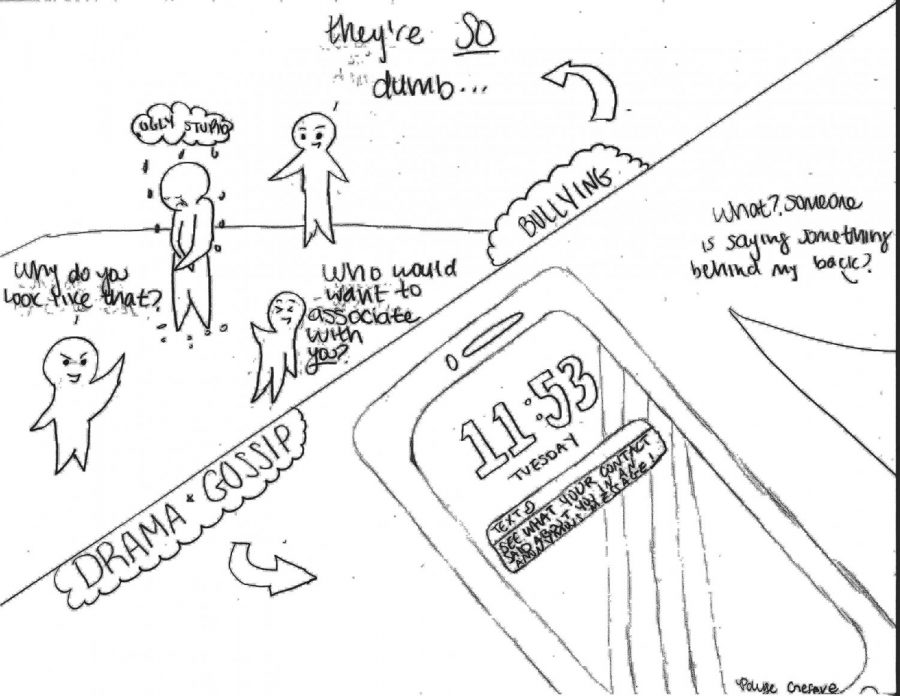Students confuse bullying with drama, gossip
January 31, 2020
While bullying is a serious problem, the word has often been used to pass off all sorts of everyday teenage drama. Knowing the difference between the two can be important if it stops a bad situation before it becomes too heated.
While drama and bullying can seem very similar at times, according to Alan Bank, social worker, there are some signs to help identify the differences.
According to Bank, bullying has more of a cruel intent; there is a desire to intimidate or control the other person.
If phrases like “he did this” and “I did that” and “OMG, how could she say that” are heard, the conflict is likely closer to the drama zone, according to follett.com.
Although there is a fine line that can sometimes be very difficult to define, the most notable difference between the two according to Ivana Trajceska, junior, is that drama involves arguing with someone, or it could be something that happens between two friends – like getting in a fight and/or no longer being friends.
In drama situations, it is important to try and talk it out.
“I try to talk to everyone involved and sometimes get administration to work everything out,” Trajceska said.
According to bullyingnoway.gov, a big identifier of bullying is a misuse of power through actions that purposefully cause harm, whether that harm is emotional, physical, or mental.
For harm to be considered bullying it would have to have occurred multiple times, not a one time occurrence in the hallway.
“People in the hallway can be so mean sometimes, but bullying is something that happens intentionally; it is purposefully targeting someone,” Kelly Fitzgerald, junior, said.
It can be common to just blame any random teenage drama on bullying. It is as an easy pass off.
“Many times people think that if someone is bothering them, even if it is in an intimidating fashion, that is automatically a situation where they’re being bullied,” Bank said, “and if there aren’t multiple situations where that is happening, then it is not going to be looked at in that manner.”
The administration understands sometimes drama can become more than originally intended.
“I could see it [bullying] getting involved [in drama], but I feel like they’re two separate entities,” Bank said, “They may still call it intimidating, but it will be addressed, and it won’t be swept under the rug.”
Despite any negativity against involving the administration, it is often essential.
“If they [students] are strong enough to want something to be done about this, because they want the action to stop, they can go directly to the dean, and then the dean will address it,” Bank said.





